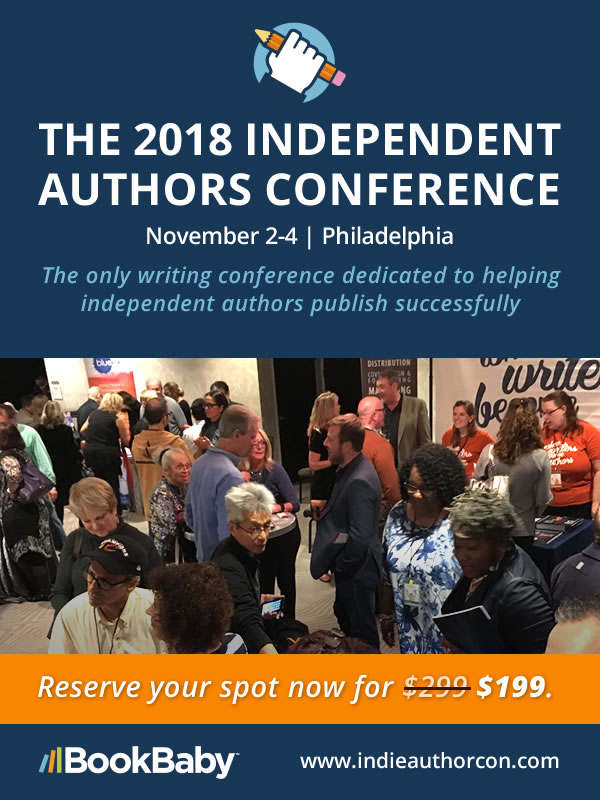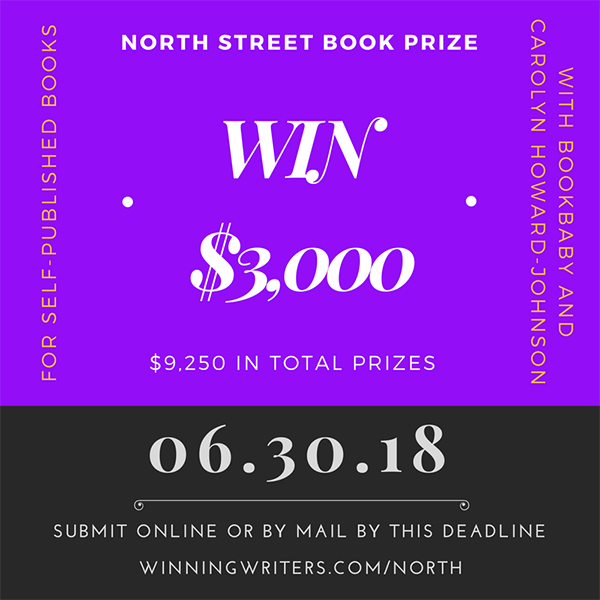 
|
Award-Winning Poems: Summer 2018
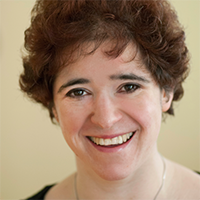
Welcome to my summer selection of award-winning poems, highlights from our contest archives, and the best new resources we've found for writers. These quarterly specials are included with your free Winning Writers Newsletter subscription.
In this issue: Lucifer from Dante's Inferno, illustrated by Julian Peters.
—Jendi Reiter, Editor
A note about the EU General Data Protection Regulation (GDPR): These new privacy rules are now in effect. To continue to receive our newsletters and occasional special messages, you don't have to do anything. However, if at any time you wish to unsubscribe, please click the Unsubscribe link at the bottom of this email. Your information is used only to send you our newsletters, notify you about our contests, administrate contest entries, and send you carefully selected messages from our sponsors that we think might interest you. We do not rent your information to third parties, we do not publish your work without your permission, and we use trusted service providers like Campaign Monitor, Submittable, and
DreamHost to keep your information secure. Learn more on our Privacy page.
Did you receive this newsletter from a friend?
Subscribe here. It's free.
Would you like daily updates on contests and resources for writers?
Join our 107,000 followers on Twitter
Deadlines This Month at Winning Writers
NORTH STREET BOOK PRIZE FOR SELF-PUBLISHED BOOKS
Top prize now $3,000. New categories include poetry and children's picture books.
|
AGRICULTURAL FAIR and other poems
by Tina Barr
Winner of the 2017 Barrow Street Book Prize
Entries must be received by June 30
This prestigious, long-running contest gives $1,500 and publication by Barrow Street Press. In this selection from Barr's prizewinning collection Green Target, the poems turn on a sudden shift of attention from bucolic images of plants and animals to the inner strife and fragility of the people watching them, a context that can never be fully escaped.
CACHE
by Josh Booton
Winner of the 2016 New Measure Poetry Prize
Entries must be received by June 30
This open poetry manuscript prize gives $1,000 and publication in Parlor Press's poetry series, Free Verse Editions. Booton's winning collection, The Miraculous Courageous, is a sequence of 60 short monologues taking the reader inside the mind of an autistic boy. This wistful, sensual poem from Raleigh Review explores how our memories of simple joys are shadowed by an impossible longing for perfection.
MANCHESTER
by Nicole Melanson
Winner of the 2017 Barbara Mandigo Kelly Peace Poetry Awards (adult category)
Postmark Deadline: July 1
This annual award gives web publication and prizes up to $1,000 in adult and $200 in youth categories, for poems that "explore and illuminate positive visions of peace and the human spirit." With unique, powerful imagery, Melanson's poem depicts parents' primal love and fear for their children in a world where terrorists can strike at any time. The title refers to the 2017 suicide bombing during a concert at Manchester Arena where many teenagers were present.
THE END OF MYTHOLOGY
by John Sibley Williams
Winner of the 2017 Literal Latté Poetry Award
Postmark Deadline: July 15
This long-running award for unpublished poems gives prizes up to $1,000 and publication in a well-regarded online journal. Williams' winning poem speaks in the collective voice of boys becoming men, whose knowledge of agriculture and weather does not prepare them for the winds of political and economic change.
COLD STREAM
by Heidi Morrell
Winner of the 2016 Ex Ophidia Poetry Prize
Entries must be received by August 31
Founded in 2014 by author and handpress-printer Richard-Gabriel Rummonds, this small literary press gives $1,000 and publication for a full-length poetry manuscript. Morrell's Old as Rainfall: Nature and People was the inaugural winner. This sparely worded poem from Young Ravens Literary Review is a philosophical meditation on human consciousness as only a small part of the natural world.
Read more award-winning poems.
|
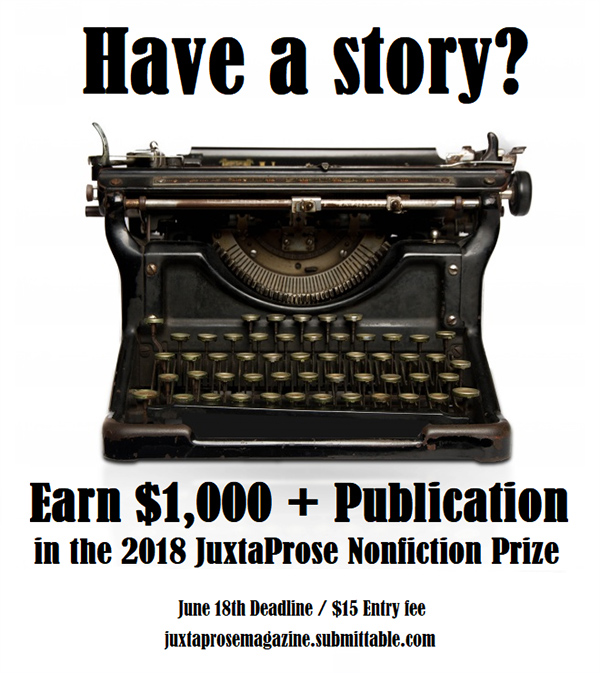
Deadline: June 18
The 2018 JuxtaProse Nonfiction Prize is now accepting submissions. The Grand Prize is $1,000 and publication in JuxtaProse Literary Magazine. Up to three entries will receive "Honorable Mention" status, which includes $100 and publication. All entries will be considered for publication, regardless of whether they receive honorable mention status.
JuxtaProse welcomes established and emerging writers alike, and our online journal regularly features the work of Pulitzer Prize winners, Poet Laureates, and other distinguished writers side-by-side with previously unpublished voices. Submit now using Submittable.
Founded in 2015, JuxtaProse is an online literary journal that publishes fiction, creative nonfiction, poetry, art, and photography from around the world. We pride ourselves on providing a venue where emerging writers can find a voice alongside some of the most respected names in world literature. Recent contributors include Pulitzer Prize winner Stephen Dunn, Man Booker International Prize winner Lydia Davis, and previously unpublished writer Emma Binder. JuxtaProse currently reaches over 5,000 readers each month.
|

Autumn House Press is now accepting full-length manuscripts for our annual Poetry, Fiction, and Nonfiction contests! Postmark deadline: June 30, 2018. The winner in each genre will receive book publication, a $1,000 advance against royalties, and a $1,500 travel/publicity grant to promote their book.
The judges for the 2018 full-length contests are:
See our complete contest guidelines.
Congratulations to last year's winners: Melissa Cundieff's Darling Nova (poetry), Glori Simmons' Carry You (fiction), and Dickson Lam's Paper Sons: A Memoir (nonfiction). Please enjoy this selection from Darling Nova:
Rebirth
by Melissa Cundieff
When the feather appeared from my breast
I wouldn't name its color. I wouldn't
pluck it as if I would a word from a page
and allow it to disappear into memory.
When the beak broke my nose, I sang my old
language with a worm in it, and the worm dangled
with every exhale it took to conjure the distant
vowels of humanness. When the wings
made my ribs into a museum, people paid
to see. But I would not fly. Only answered
the people with a poem. The first or last line
was this: because from eye, blossoms entrance…
I don't remember the rest, except
there was you, perched on leaning stacks
of ruined books. I can't speak for much more
than wanting to pull a rock from the wreck,
to throw it at the closed window, so we
could both leave like seeds spit against the sky.
|
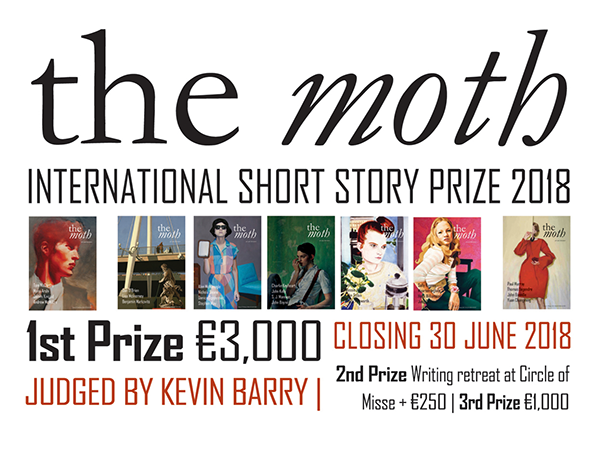
Deadline: June 30
The Moth Short Story Prize is an important date on the literary calendar. Every year, a single judge is asked to choose three winning stories to feature in the autumn issue of The Moth, an international art & literature magazine based in Ireland.
-
1st prize €3,000
-
2nd prize a week at Circle of Misse in France plus €250 travel stipend
-
3rd prize €1,000
This year's judge is Kevin Barry, former winner of The Sunday Times EFG Short Story Prize, The European Prize for Literature and the IMPAC Prize, and his latest novel Beatlebone was awarded the Goldsmiths Prize.
The Prize is open to anyone (over 16) as long as the work is original and previously unpublished. Enter from any country. Stories can be on any subject or theme. There is a word limit of 5,000. The entry fee is €12 per story.
Former winners include Georgina Aboud (UK), Nikki McWatters (Australia) and Marc Phillips (USA). Read about the winner of last year's Moth Short Story Prize in the Irish Times.
ENTER ONLINE
DOWNLOAD ENTRY FORM
RULES
PREVIOUS WINNERS
|
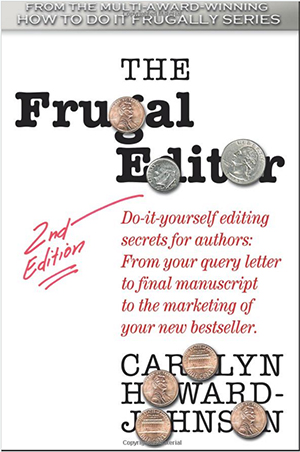 There are gremlins out there determined to keep your work from being published, your book from being promoted. Resolved to embarrass you before the gatekeepers who can turn the key of success for you, they lurk in your subconscious and the depths of your computer programs. Whether you are a new or experienced author, The Frugal Editor will help you present whistle-clean copy (from a one-page cover letter to your entire manuscript) to those who have the power to say "yea" or "nay". There are gremlins out there determined to keep your work from being published, your book from being promoted. Resolved to embarrass you before the gatekeepers who can turn the key of success for you, they lurk in your subconscious and the depths of your computer programs. Whether you are a new or experienced author, The Frugal Editor will help you present whistle-clean copy (from a one-page cover letter to your entire manuscript) to those who have the power to say "yea" or "nay".
The second edition of The Frugal Editor: From Your Query Letter to Final Manuscript to the Marketing of Your New Bestseller is the winningest book in Carolyn Howard-Johnson's HowToDoItFrugally Series of books for writers, including accolades from Next Generation Indie Awards, USA Book News Awards, Reader Views Literary Awards, the coveted Irwin Award, and Dan Poynter's Global Ebook Awards.
BUY NOW FROM AMAZON (just $3.99 on Kindle)
"Absolutely essential for beginning writers and a necessary reminder for the more advanced. The mentor you've been looking for. This book won't collect dust!"
~ Christina Francine, review for Fjords Review
"Using the basic computer and editing tricks from The Frugal Editor, authors can prevent headaches and save themselves time—and even money—during the editing process. It's well worth your effort to learn them."
~ Barbara McNichol, Barbara McNichol Editorial
"Writers and editors have a true friend in Carolyn Howard-Johnson. Her word smarts, her publishing savvy, and her sincere commitment to authors and editors make The Frugal Editor a must-have resource."
~ June Casagrande, author of Grammar Snobs Are Great Big Meanies (Penguin) and syndicated grammar columnist
|
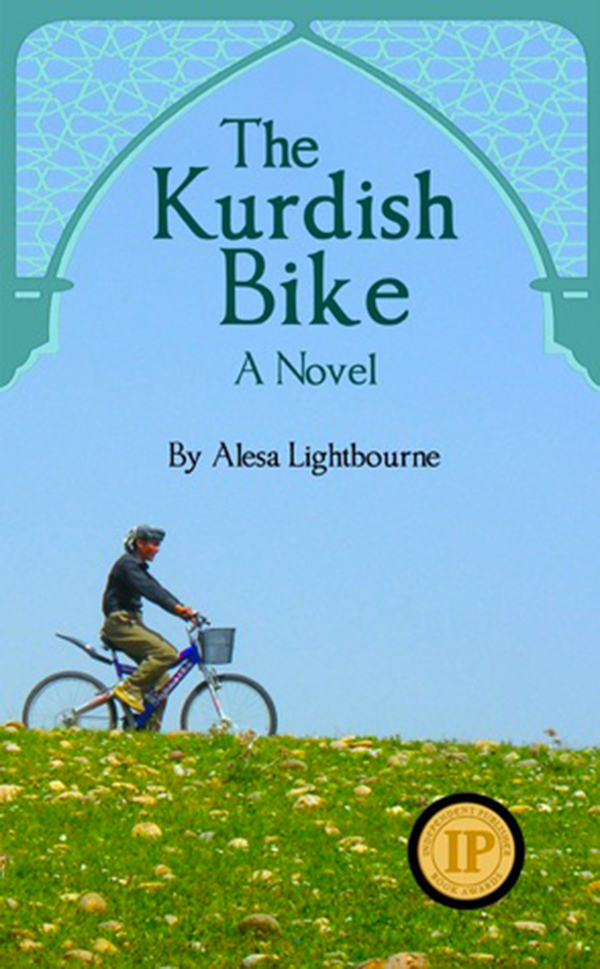
"Set against the backdrop of a powerful political landscape, The Kurdish Bike offers a stunning social, political, and cultural commentary of what it is like to live in a third world country torn apart by war. A single mom, the newly recruited teacher on a bike, makes friends with native women and her contact and relationship with them lead her to get glimpses of the not-so-obvious conflicts that threaten life in the country. Bezma's family stands out as a symbol of the oppressed. The prose is polished and rings through the ears like music. The author has the rare gift of weaving national conflict into the lives of individuals. And then there is the biting sense of humor, the ability to portray hope through simple relationships, to find meaning in the will to survive each day at a time. The characters are well grounded, sculpted to reflect the social landscapes
from which they sprang. In spite of the powerful conflict that permeates every layer of this book, the unspoken words and the silent cries, there is a current of positive energy communicated through laughter, love, and friendship. The novel is beautiful in a haunting sort of way. Fans of The Kite Runner by Khaled Hosseini will adore Alesa Lightbourne's evocative writing, the reminiscences of war images, and the general malaise felt by millions of people, plus the pain of belonging to their own country." (Five stars, San Francisco Book Review)
"The story is admirable for its characters, for they are not only well thought out, but also reflective of a country whose people are torn by a decade-long war. The characters are well-developed and are a mirror to the courage and strength shown by women in times of distress. Alesa Lightbourne has shown excellent penmanship writing this novel based on her personal experience and shows how involved she was in the lives of the people she taught and met in Iraq. If you are interested in knowing about the lives, cultures, and hardships faced by people in the Middle East, this book is a must-read." (Five stars, Manhattan Book Review)
"Lightbourne writes in a cinematic prose and easily folds in background about the Kurdish people's suffering under Saddam Hussein. This story of sisterhood, motherhood, and nationhood should have wide appeal." (BookLife)
Available at Amazon.com and through Ingram. Read the Winning Writers critique and a free excerpt.
|
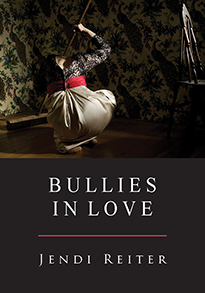
Winning Writers editor Jendi Reiter's fourth poetry book and second full-length collection, Bullies in Love, is available from Little Red Tree Publishing, with illustrations by fine art photographer and Massachusetts Cultural Council award winner Toni Pepe. Poems in this collection have won
prizes from Atlanta Review, Anderbo, Alligator Juniper, Descant, New Millennium Writings, Solstice Literary Magazine, Wag's Revue, and others.
Based in North Platte, NE, Little Red Tree publishes books of poetry, fiction, nonfiction, and art that "delight, entertain, and educate", as well as the print and online literary magazine Peacock Journal.
"A collection to enjoy and savor...the writing dazzles, surprises, and beguiles the reader with its unexpected vistas. The photography questions what we see; the poems question the ever present role of sex, probes comfortable personal assumptions and our collective cultural fairy tales."
—5-star Amazon review by Carol Smallwood, author of Divining the Prime Meridian (Wordtech Editions, 2015)
Please enjoy this sample poem and purchase Bullies in Love on Amazon.
For the Other Princesses
Luck comes to those who are prepared,
the beautiful crone tells me—
me, of all the others.
Yes,
and believe
that food comes to those who have pots,
seed to those with bare hands
scratching furrows in the soil.
No,
that isn't all they needed,
the other princesses
whose middle of the story didn't end:
who grew bent scrubbing the dragon's scales
or squinted at years of summer
gilding the unpicked
windfall of immortal apples
heaped like defeated men's shields.
Yes,
you'll object that I didn't wait,
dear lady who draws me
into one version of my story.
You'll call me my own prince,
paint a sword in the hand
I was only raising like a bad schoolboy
who has faith he'll be answered
till the master's cane slices his palm.
No,
I haven't change enough for all the beggars
who were princesses too:
thorn-blind, tongue-torn,
who leapt from towers without wings
and chewed through roots
and dragon throats,
breaking every tooth in their now
unkissable mouths.
Praise them, praise their defeat,
the bald loom of their sex—
you wiser woman with hair like the moon,
fall silent when they bark at shadows
in the sun-flattened public square.
Let them say No to bread
and Yes to the river
and let the drops of blood
on their footpath say nothing at all.
Some nights the crash of stars wakes me
like the light from a broken window
and I think I see the other princesses,
wishing me nothing, exhaling no cloud of advice,
their still mounded bodies the stair
leading over my old cursed wall.
No, my dears,
there are no rescuers but there is rescue.
|
|
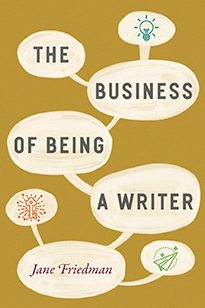
The Business of Being a Writer
by Jane Friedman
The expert publishing blogger teaches writers about the economics of their industry in this book from the University of Chicago Press. The book is intended to help writers craft a realistic plan for earning money from their work.
Café Crazy
by Francine Witte
In this tough-minded, bluesy poetry collection, the narrator cuts her no-account alcoholic ex-husband down to size—and curbs her lingering desire for him—by contextualizing their relationship within nature's larger creative and destructive patterns, from forest fires to mass extinctions. "Charley" is just another predator, and not an apex one, at that. Witte's portmanteau words give the poems a distinctive voice and an improvisational quality: bees are "sticky with flowersex", and humans "go along futurestupid", like any other species unable to predict the meteor strike with their number on it.
Dennis Norris II: Awst Collection
by Dennis Norris II
Self-titled fiction chapbook from Awst Press collects four exquisite and agonized tales that limn how desire between men is shaped by the cruelty of boys' socialization into male dominance.
Girl Flying Kite
by Nancy Louise Lewis
The subjects of this visionary, God-haunted debut poetry collection could not be further from the innocent quotidian scene suggested by the title. In fact, the title itself is our first clue to the menace and mystery Lewis finds beneath the surface of daily life, as it refers to a child victim of the atomic bomb dropped on Nagasaki, the shadow of her last playful moments forever burned into the wall. Other poems draw inspiration from the author's Appalachian childhood, stories of father-daughter incest, and enigmatic encounters with a divinity whose presence we can neither completely discount nor rely on. Lewis is most at home in the space between belief and doubt, like the constantly eroding and re-forming shoreline of the ocean that appears in many of these works.
Saint X
by Caroline Cabrera
Winner of the Hudson Prize from Black Lawrence Press, this poetry collection creatively explores the traumas and strengths of emerging womanhood by "answering" questions from a science textbook in ambiguous and offbeat ways. Later poems about religion shed light on the initially cryptic title, positioning the book as a kind of talkback to the catechism format. The mystery of "X" is an experience to savor, not an equation to solve.
So You Want to Talk About Race
by Ijeoma Oluo
This manual on contemporary race relations by an up-and-coming black woman journalist should be required reading in high schools and colleges, and is also invaluable for writers to recognize prejudiced tropes in their characters and plots. Using personal anecdotes and examples from everyday life, Oluo liberates essential concepts like privilege, structural racism, and intersectionality from the academic jargon and toxic call-out culture where conversations about racism often get stuck. She neither condescends to, nor coddles the reader, showing vulnerability with stories about her family's experiences with poverty and racism, while maintaining strength and clarity in her demands for justice. Reading this book will make you feel like you've made a new friend who respects you enough to give you constructive criticism.
|
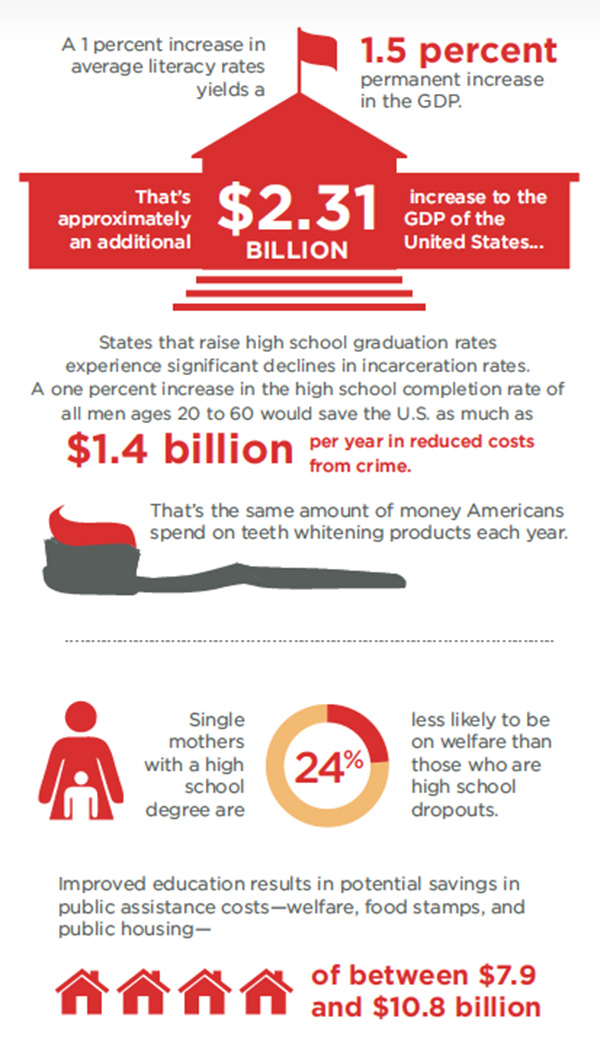
ProLiteracy, the largest literacy and basic education membership organization in the nation, believes that a safer, stronger, and more sustainable society starts with an educated population. For more than 60 years, ProLiteracy has been working across the globe to create a world where every person can read and write. Learn more.
|
Advertisers: We send this newsletter to over 50,000 subscribers. Ads are just $150 each. On a tight budget? Pressed for time? Advertise to our 107,000 Twitter followers for just $40 per tweet or less.

Solo mailings and website advertising available. Inquire with Adam Cohen at adam@winningwriters.com.
|
Julian Peters writes, "To Hell and Back: An Anthology of Dante's Inferno in English Translation was published last year by John Benjamins (Amsterdam). Edited by Tim Smith and Marco Sonzogni, the book runs through all 34 cantos of the Inferno twice, from I to XXXIV, and then in reverse order from XXXIV to I, with each of these resultant 68 cantos culled from a different English translation of Dante's masterpiece, ranging in date from the late eighteenth century to the present. Here is one of my two illustrations from the very centre of the book, between the two Canto XXXIVs.
"In the last canto of Dante's Inferno, the Florentine poet arrives at the center of the final circle of Hell, where he lays eyes on Lucifer himself. Here Hell has literally frozen over, and the Devil is described as encased up to his waist in ice. Lucifer has three faces, and in each of his mouths he chews on, but never quite finishes devouring, a notable sinner. The three devourees are Cassius, Brutus and Judas Iscariot, all guilty of the sin of treason towards a benefactor, which, evidently, is the greatest sin of all.
"In Dante's cosmology, Lucifer stands at the very center of the Earth, and for the first drawing I had in mind a conception of him as the gravitational center of all Evil, the point towards which all temptation is ultimately pulling. Or perhaps his mouths could be interpreted as a kind of triple black hole, swallowing up as much of the light of the Universe as they can."
Read more at Mr. Peters' website.
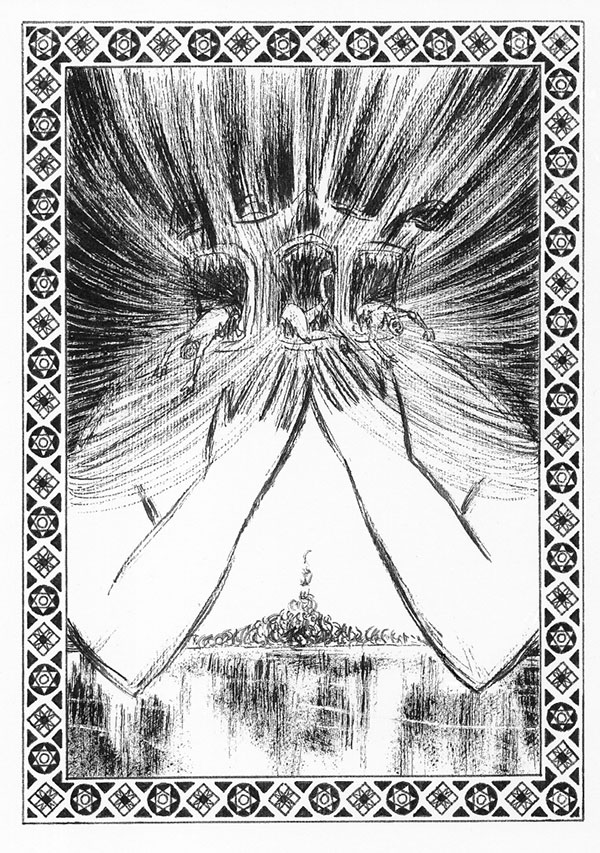
Excerpt from Inferno, Canto XXXIV
by Dante Alighieri, translated by Henry Wadsworth Longfellow, hosted by the Academy of American Poets
The Emperor of the kingdom dolorous
From his mid-breast forth issued from the ice;
And better with a giant I compare
Than do the giants with those arms of his;
Consider now how great must be that whole,
Which unto such a part conforms itself.
Were he as fair once, as he now is foul,
And lifted up his brow against his Maker,
Well may proceed from him all tribulation.
O, what a marvel it appeared to me,
When I beheld three faces on his head!
The one in front, and that vermilion was;
Two were the others, that were joined with this
Above the middle part of either shoulder,
And they were joined together at the crest;
And the right-hand one seemed 'twixt white and yellow;
The left was such to look upon as those
Who come from where the Nile falls valley-ward.
Underneath each came forth two mighty wings,
Such as befitting were so great a bird;
Sails of the sea I never saw so large.
No feathers had they, but as of a bat
Their fashion was; and he was waving them,
So that three winds proceeded forth therefrom.
Thereby Cocytus wholly was congealed.
With six eyes did he weep, and down three chins
Trickled the tear-drops and the bloody drivel.
At every mouth he with his teeth was crunching
A sinner, in the manner of a brake,
So that he three of them tormented thus.
To him in front the biting was as naught
Unto the clawing, for sometimes the spine
Utterly stripped of all the skin remained.
|
|

|
|
|





